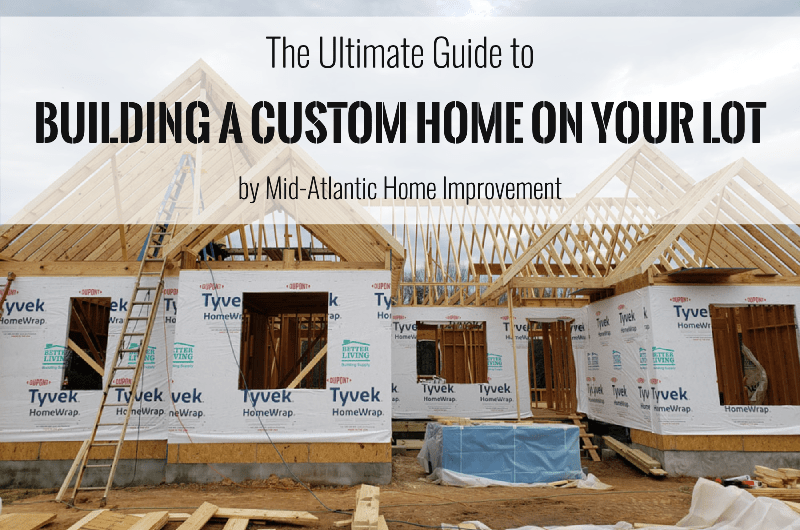
Thinking of building a custom home on your lot?
Building a custom home on your lot gives you the freedom to design a space that suits your lifestyle. However, the process can be complex. Unlike purchasing a prebuilt home, building from scratch requires careful planning, budgeting, and selecting the right contractor.
This guide will walk you through the entire process—from preparation to move-in—helping you avoid common pitfalls along the way.
Step 1: Building a Custom Home on Your Lot – Determining Your Budget and Planning Ahead
Determining Your Budget
Building a custom home on your lot requires a clear and detailed financial plan, as costs can vary significantly depending on a variety of factors. By establishing your budget early, you can avoid surprises down the line and ensure a smoother building process. It’s also crucial to account for contingencies, as unexpected costs can arise at any stage of construction.
Several factors influence the overall cost of your project:
- Land Preparation: This includes clearing the lot, grading the land, and preparing utilities (such as water, sewer, and electricity connections). Depending on your property’s location and condition, these costs can vary widely.
- Permits and Fees: Building permits, zoning approvals, and environmental clearances can come with significant fees. Be sure to include these in your budget, as they are essential for moving forward with construction.
- Construction Materials and Labor: The cost of materials (such as lumber, concrete, and roofing) and skilled labor (carpenters, electricians, etc.) will make up a substantial portion of your budget. Keep in mind that material prices can fluctuate based on market conditions.
- Interior Finishes and Customization: The choices you make for flooring, cabinetry, countertops, and fixtures can significantly affect your budget. Customization options, such as luxury finishes or energy-efficient upgrades, should be planned for early on.
Additionally, always build in a contingency fund of 10-20% of your total budget to cover unexpected expenses. Working with a contractor who has experience in custom builds can help you anticipate these costs and stay on track financially.
Financing Options
There are two main financing options to consider:
- Traditional mortgages: Available if you own the land outright and can finance the construction as a permanent home loan.
- Construction loans: Short-term loans that convert into a mortgage after completion, providing funds throughout the building process.
Finding a Builder
Look for a contractor with experience in “build on your lot” projects. Check reviews, ask for references, and confirm licensing and insurance.
Not sure where to start with budgeting? Our team can help you outline realistic costs and avoid unexpected expenses. Contact us for expert guidance.
Avoid This Mistake
Failing to budget for hidden costs like site work, utility connections, and unexpected delays.
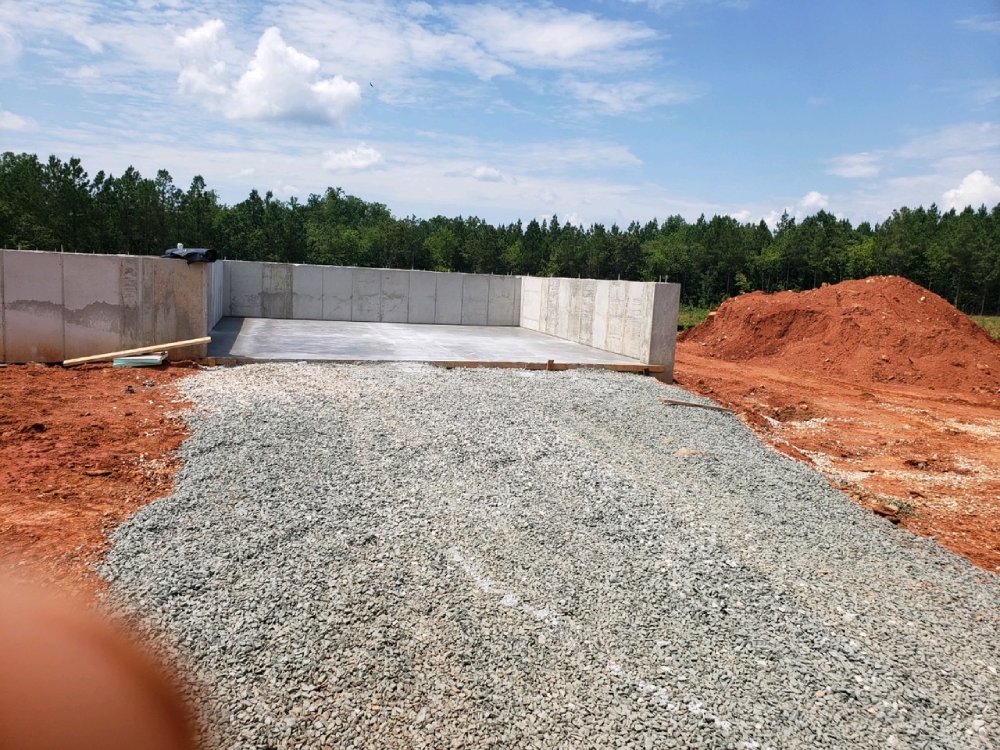
Step 2: Site Preparation & Permitting – Getting Your Land Ready
Land Evaluation
Before construction begins, your land must be assessed to determine soil stability, drainage, and accessibility for construction crews. These factors will influence foundation choices and water management, ensuring a smooth building process.
With extensive experience building custom homes on your lot, we understand that every property is unique. Our experts will evaluate your land to ensure it’s ready for construction. Schedule a consultation today to get started.
Zoning & Permits
Obtaining the necessary permits is a crucial step in the home-building journey. These include zoning approvals, building permits, and environmental clearances, all of which can vary depending on your location. Zoning approvals ensure that your project complies with local land use regulations, while building permits confirm that your plans meet safety codes and standards.
This process can be complex and time-consuming, but that’s where your contractor comes in. A skilled builder will take the lead in obtaining these permits on your behalf, ensuring all necessary paperwork is filed and approvals are secured. They will also navigate local regulations to avoid any delays or roadblocks, saving you time and potential frustration.
At Mid-Atlantic Home Improvement, we handle all aspects of permitting and zoning so you can focus on the exciting parts of your project. Trust our team to guide you through the process with ease and expertise.
Surveying & Lot Clearing
Before construction begins, a thorough evaluation of the land is essential to ensure it’s properly prepared for building. This includes assessing topography, soil stability, drainage, and site accessibility. Excavation and grading play a key role in creating a stable foundation for your home.
Once these factors are considered, the land can be properly cleared and prepped for the next steps. Here’s what to expect during this phase:
- Tree removal and grading
- Installation of access roads if needed
- Ensuring proper utility connections
Avoid This Mistake
Underestimating the time required for permitting and site prep, which can delay construction.
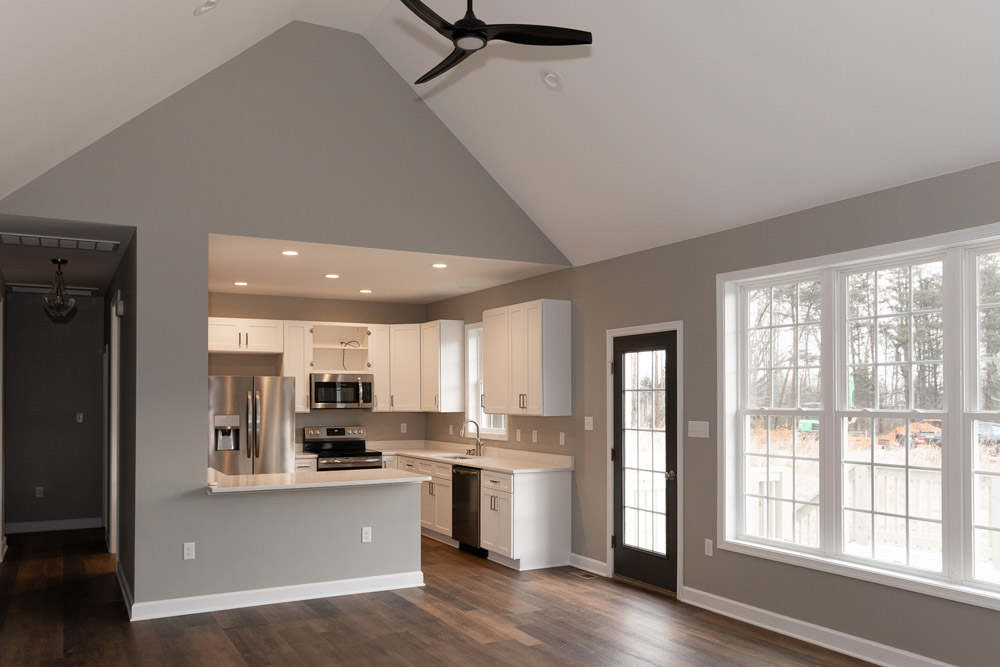
Step 3: Designing Your Custom Home
Choosing the Right Floor Plan
Selecting the right floor plan is one of the most important decisions in the home-building process. It’s not just about creating a space that works for you today, but one that adapts to your future needs. Start by considering your current family size and how it might change over time. Think about potential growth—whether that means adding family members, accommodating guests, or even setting up a home office or a space for hobbies.
Functionality is key—ensure your floor plan offers easy flow between rooms, ample storage, and accessibility. Don’t forget about future resale value, too. A home that suits your needs now but also appeals to future buyers is a smart investment.
As you move through the design process, it’s important to visualize how each space will work in practice. How do you want to live in your home, and how can the floor plan accommodate that lifestyle? Whether it’s an open concept for entertaining or separate spaces for privacy, the layout you choose will have a lasting impact on your daily life.
Working With Architects & Designers
At Mid-Atlantic Home Improvement, we offer both pre-designed plans and fully custom home designs in collaboration with skilled architects. This stage is where your vision takes shape, allowing you to personalize every detail and create a home that truly reflects your style.
Whether you prefer a modern open layout or a timeless classic design, our team will guide you through the process, ensuring your new home is both beautiful and functional. Explore our custom home options and work with our experts to craft a space tailored to your lifestyle.
Customization Options
Modern homes offer a range of options to enhance comfort, efficiency, and longevity. Energy-efficient features reduce utility costs, smart home technology provides convenience and security, and aging-in-place designs ensure accessibility for years to come.
Avoid This Mistake
Not considering future needs and resale value when designing your home.
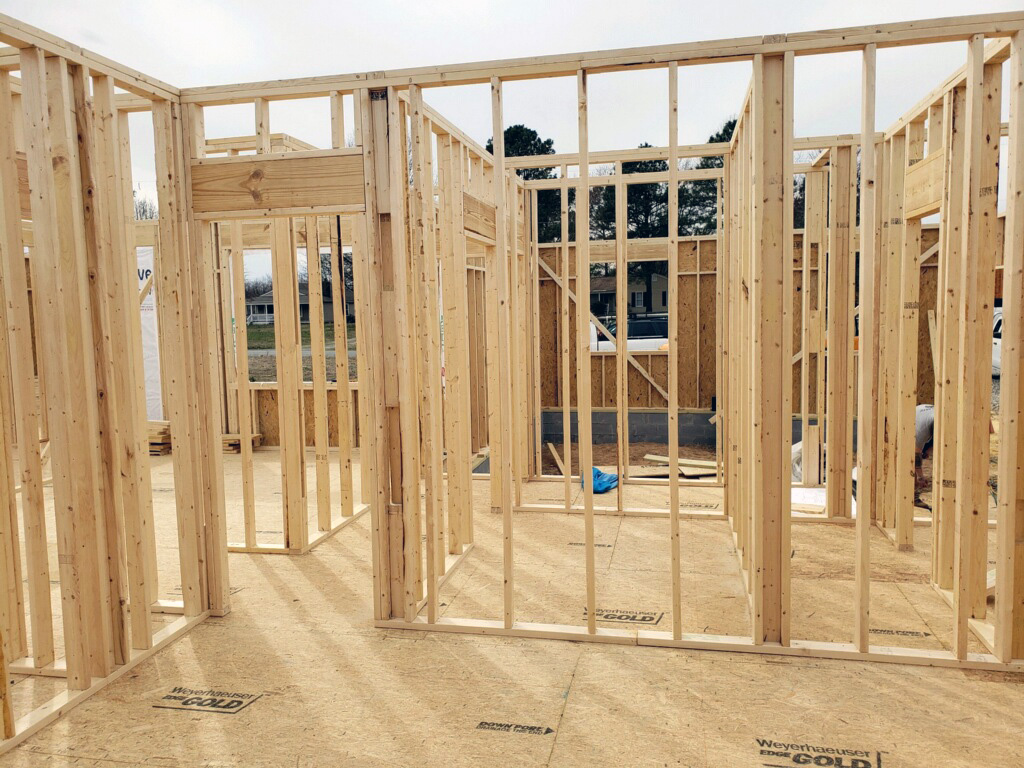
Step 4: The Construction Process – What to Expect
Once your plans are in place and permits are secured, the construction of your custom home begins. This phase is where your vision starts to take shape, and while it’s exciting, it’s also essential to understand the process. From laying the foundation to the finishing touches, each stage of construction requires careful attention and coordination. Here’s a breakdown of what you can expect as we move through the key phases of building your dream home.
Phase 1: Foundation & Framing
The first phase focuses on establishing the structural integrity of your home—excavating, pouring the foundation, and framing the walls, roof, and exterior elements.
Phase 2: Systems & Interior Work
Once the structure is in place, essential systems are installed, including plumbing, electrical, and HVAC. Next comes insulation, drywall, and flooring to complete the interior.
Phase 3: Final Touches & Inspection
In the final phase, finishing details like painting, cabinetry, and fixtures are installed, while landscaping and exterior work enhance curb appeal. A final inspection ensures everything meets quality standards before move-in.
From foundation to final touches, we handle every step with care. Trust a builder who brings experience and precision to your custom home project.
Avoid This Mistake
Rushing the process—quality takes time, and cutting corners leads to future issues.
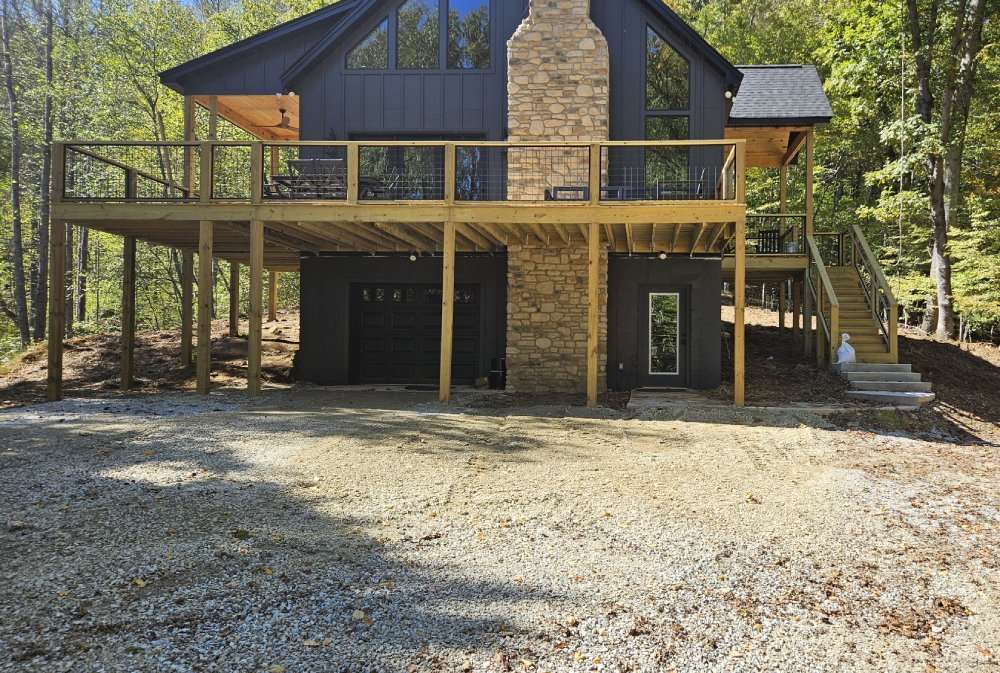
Step 5: Understanding the Timeline – How Long Does It Take?
Building a custom home is a significant undertaking that requires careful planning and coordination. A common question homeowners have is how long the process will take. While each project is unique, understanding the general timeline helps set realistic expectations. Here’s an overview of the typical milestones and timeframes involved in building your custom home.
Estimated Timeline Breakdown
The timeline will vary based on factors like design complexity, weather, and permit approvals. However, a typical home-building project follows this schedule:
- Planning & Permitting: 2-6 months
- Site Prep & Foundation: 1-2 months
- Framing & Roofing: 2-3 months
- Plumbing, Electrical, HVAC, and Interior Work: 3-5 months
- Final Touches & Inspections: 1-2 months
- Total Time Estimate: ~12-18 months
Stay on schedule with a builder who values efficiency and transparency. If you choose Mid-Atlantic Contractors, we’ll ensure your project stays on track with clear communication and effective project management from start to finish.
Avoid This Mistake
Expecting an exact move-in date—delays can happen due to weather, supply shortages, or permit issues.
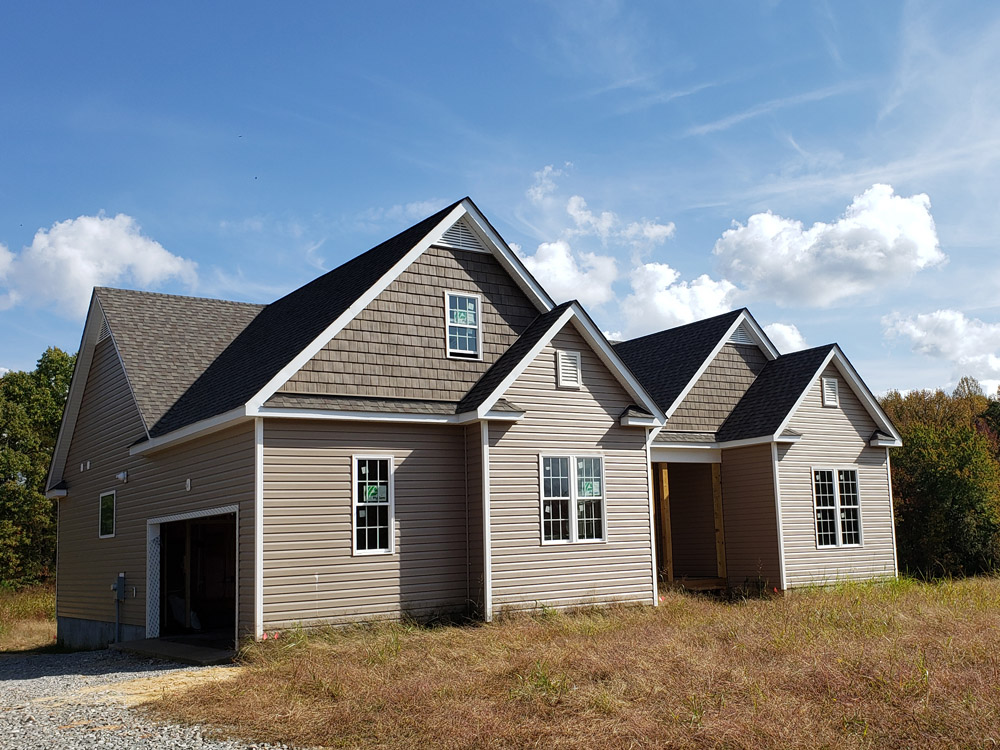
Step 6: Move-In & Post-Construction Considerations
Once your custom home is complete, it’s time to move in and start enjoying your new space. But before you unpack, there are a few final steps to ensure everything is in order. From final inspections to understanding your warranty, this phase ensures that your home is ready for you to make it your own. Here’s what you need to know as you transition from construction to living in your dream home.
Final Inspections & Certificate of Occupancy
Before moving in, your home must pass final inspections to ensure it meets building codes. A Certificate of Occupancy is issued once all requirements are met, allowing you to officially move in.
Warranty & Maintenance Tips
Understanding your builder’s warranty coverage is crucial for protecting your investment. Planning for ongoing maintenance, such as HVAC servicing and exterior upkeep, helps ensure the longevity and efficiency of your home.
Here at Mid-Atlantic Home Improvement, we believe your investment deserves long-term care. We stand by our work with warranties and ongoing support. Have questions? We’re here to help.
Avoid This Mistake
Skipping the final walkthrough—ensure all issues are addressed before closing.
Building a Custom Home on Your Lot with Confidence
Building a custom home on your lot is a major investment, and choosing the right builder makes all the difference. With over 45 years of experience, Mid-Atlantic Contractors ensures a smooth, stress-free process from start to finish. We handle everything—from securing permits to final finishes—while maintaining transparency, efficiency, and craftsmanship.
When you choose Mid-Atlantic, you get:
✔ Expert planning and design guidance tailored to your needs
✔ Complete permit and code compliance managed for you
✔ Skilled craftsmanship from foundation to final details
✔ A dedicated team ensuring quality, communication, and efficiency
✔ A full one-year warranty on materials and workmanship
Let’s bring your dream home to life—with a team you can trust. Contact Mid-Atlantic Contractors today to start your journey!

We are a family-owned and operated Virginia general contractor with over 45 years of experience in construction, restoration and remodeling. Our dedication to your satisfaction is our number one priority!
Call (804) 647-0649!
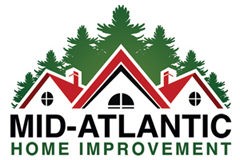
Leave a Reply